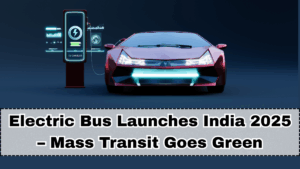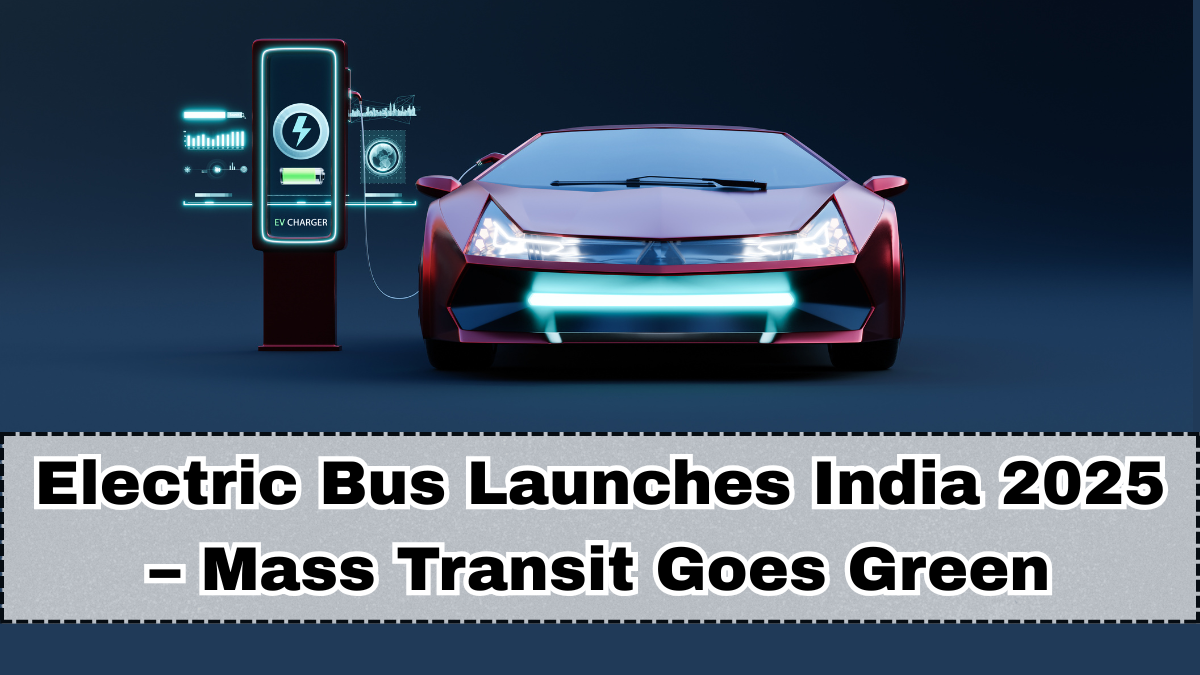India’s public transportation sector is undergoing a historic transformation as Future Mobility Bus EV Launches India 2025 introduce a wide range of electric buses designed for cleaner, cheaper, and more sustainable mobility. Government policies, rising fuel costs, and pressure to reduce emissions are pushing cities to adopt EV buses at record speed. In 2025, multiple brands will launch next-generation electric buses with longer range, faster charging, higher passenger capacity, and smarter fleet management technologies — marking the biggest leap in mass transit modernization.
Electric buses play a crucial role in reducing air pollution, improving city environments, and cutting operational costs for state transport units. The shift toward electric bus India 2025 comes at a time when India’s urban centres are expanding rapidly, requiring efficient and eco-friendly transportation systems. EV buses offer smoother rides, lower noise pollution, and consistent performance on busy urban routes, making them ideal for metropolitan cities, tourist regions, and intercity operations.

Top Electric Buses Launching in India in 2025
1. Tata Starbus EV Gen3 – Reliable, Long-Range Public Transport
Tata Motors is preparing the third-generation Starbus EV, designed for daily city routes with high passenger load. Known for reliability, this updated version will feature stronger battery packs and improved interiors.
Key Highlights:
• Range: 250–320 km
• Capacity: 30–40 passengers
• Features: Air suspension, advanced telematics
USP: Best-suited for city transport fleets across India
2. Ashok Leyland Switch EiV 15 – High-Capacity Urban EV Bus
Switch Mobility, part of Ashok Leyland, is expanding its portfolio with the EiV 15, a high-capacity bus for metro cities.
Key Highlights:
• Range: Up to 300 km
• Charging: Fast-charge + battery-swapping compatible
• Tech: Regenerative braking, fleet app integration
USP: Ideal for high-frequency urban corridors
3. BYD eBus 2025 – Global Tech, Indian Adaptation
BYD’s updated eBus will launch in India with advanced battery chemistry and robust safety systems. BYD buses are already used worldwide in public transit systems.
Key Highlights:
• Range: 350+ km
• Battery: Blade Battery for high endurance
• Features: Intelligent energy management
USP: Longest range in its segment with premium passenger comfort
4. JBM EcoLife EV – Premium Comfort with Smart Features
JBM Auto is updating the EcoLife electric bus with improved suspension, dual HVAC systems, and advanced infotainment for passengers.
Key Highlights:
• Range: 250–300 km
• Cabin: Low-floor design, spacious interior
• Tech: AI-based fleet diagnostics
USP: Best comfort-focused EV bus for city operations
5. EKA Mobility 2025 Electric Bus – Cost-Efficient & Modular
EKA Mobility will expand its electric bus portfolio in 2025 with modular designs for different applications including corporate fleets and airport shuttles.
Key Highlights:
• Range: 180–250 km
• Features: Lightweight build, efficient motors
• Charging: Overnight and fast-charging support
USP: Cost-efficient EV bus option for state transport units
Why Electric Buses Are the Future of Urban Transport
Electric buses offer multiple advantages for city transport systems. They reduce emissions drastically, provide a quiet ride, and help government fleets cut fuel and maintenance expenses. As the mass transit EV India trend rises, electric buses are becoming essential for sustainable mobility.
Key benefits include:
• Up to 50% lower running cost than diesel buses
• Zero tailpipe emissions
• Reduced noise pollution
• Smoother acceleration and braking
• Lower long-term maintenance costs
Cities adopting EV buses also experience improved air quality and more pleasant commuting environments.
Range, Battery & Charging Improvements
Electric buses launching in 2025 will include improved battery packs designed for long daily routes and high passenger loads. Better thermal management, regenerative braking, and route-optimized charging help maintain consistent performance.
Expected performance improvements:
• Real-world range: 200–350 km
• Fast-charging time: 45–90 minutes
• Battery type: LFP & Blade Battery technology
• Smart BMS for extended lifespan
Fleet operators can also integrate opportunity charging, where buses recharge during layovers at terminals.
Technology & Safety Upgrades in 2025 EV Buses
Passenger comfort and safety are major focus areas for 2025 EV buses. Upgrades will include:
• Digital route displays
• CCTV systems
• Panic buttons and emergency alerts
• GPS-based fleet tracking
• Low-floor entry for accessibility
• Dual-zone climate control
AI-driven fleet management will help operators track battery health, optimize routes, and reduce downtime.
Why 2025 Will Be a Breakthrough Year
Government EV policies, FAME incentives, and rising adoption by state transport undertakings make 2025 a landmark year for electric buses in India. With better infrastructure, more brands entering the segment, and stable long-range performance, EV buses will become the backbone of India’s green mobility movement.
FAQs
Which electric bus is most awaited in 2025?
The Tata Starbus Gen3 and BYD eBus 2025 are among the most awaited launches.
What is the typical range of 2025 EV buses?
Most buses will offer 200–350 km depending on route and battery capacity.
Are electric buses expensive to operate?
No, they are significantly cheaper to run compared to diesel buses.
Will EV buses be used for intercity routes?
Yes, longer-range models and premium EV coaches are expected to enter intercity transport as well.
Do electric buses require special infrastructure?
Fast chargers and depot-level charging setups are required, but infrastructure is expanding rapidly.
Click here to know more.
